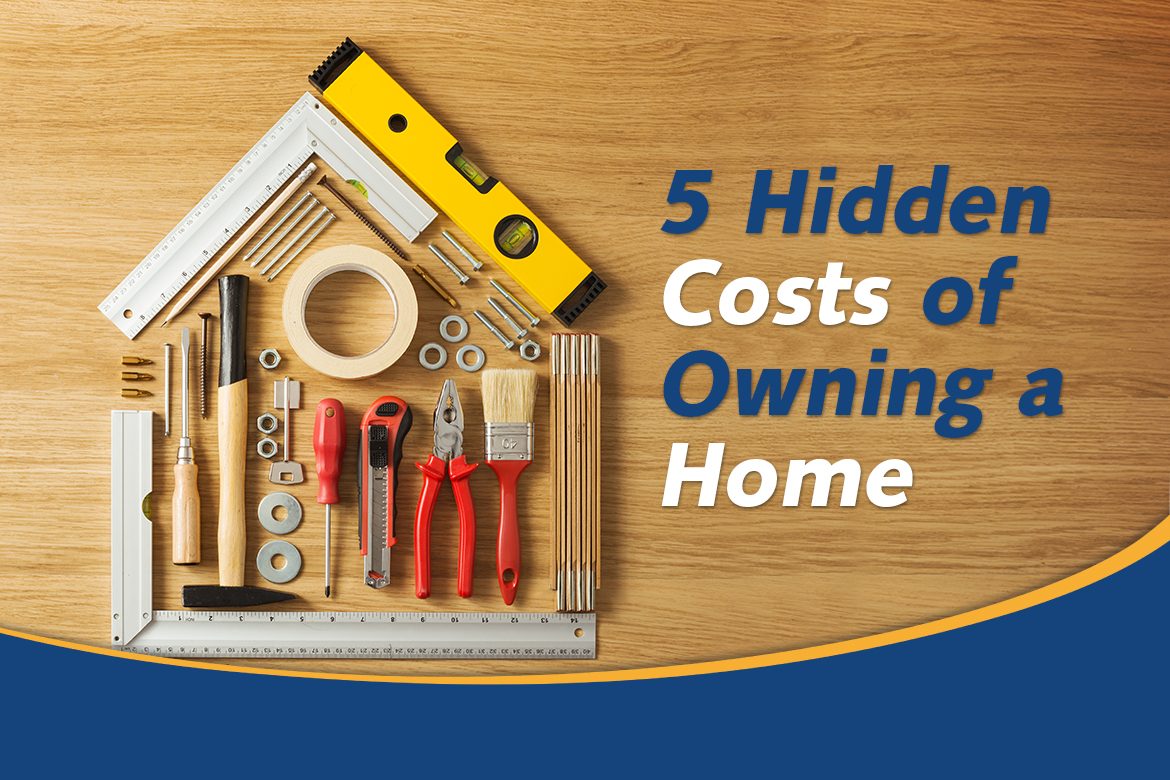Have you punched the sales price of a house into a mortgage calculator and decided that owning a home costs less than renting? The advantages of homeownership could include investing in an asset, a sense of stability, and predictable mortgage payments.
At the same time, you need to budget for your home by considering more than just the principal and interest payments on your loan. Once you prepare for both obvious and more hidden costs of owning a home, you can be sure that your dream house won’t change into a financial nightmare.
Be Careful of These Five Hidden Costs of Owning a Home
Besides your monthly mortgage payments, make certain that you budget for these additional costs of owning your own home:
Property Taxes: Property taxes may vary by city, county, or even by school district. If you can’t find the current property taxes on the home’s listing, ask your realtor. Owners may have to pay multiple property taxes to the school district, water district, and so on. Add up the annual total, divide by 12, and then add that figure to your monthly payments.
Homeowners Insurance: Any lender will require you to buy homeowners insurance. Even if you pay cash, you’ll be prudent to consider insurance as a way to protect your investment. If you live in a high-risk area for floods, windstorms, and other hazards, you may need to purchase more than just a basic policy. Make sure to get a few different insurance quotes to compare pricing and coverage.
Maintenance: After you purchase your house, you won’t have a landlord to make sure the grass is mowed, the roof is kept clear of debris, or the filters for your air conditioning unit are changed. In fact, you may need to pay to service such large appliances, such as your air conditioner, a couple of times a year. Ask other homeowners in the neighborhood to see how much they budget for routine maintenance.
Repairs: Typically, you purchase homeowners insurance to protect your wallet against a major hazard. Your typical insurance policy won’t replace your broken air conditioner or garage door. You may choose to buy a home warranty that can help make costs more predictable; however, you then need to add the cost of the warranty to your monthly budget. It’s tough to predict average repair bills, but it is best to have an emergency fund set up before you take ownership of your house.
Furnishings: If you plan to move from an apartment to your new house, you probably don’t already own enough furnishings for the extra rooms you hope to enjoy. While you might be content to wait to furnish the den or extra bedroom, you may need to buy drapes or shades and other fixtures right away unless the previous owner includes the old ones. Make sure to budget for move-in costs and any other unexpected expenses you may encounter.
We’re Here to Help!
Are you ready to become a homeowner? If so, your first step is to get a pre-approval from the credit union. We’ll show you how much you can afford to spend, help you estimate closing costs, moving expenses and more.
Stop by or give us a call at 800.782.4899.
Each individual’s financial situation is unique and readers are encouraged to contact the Credit Union when seeking financial advice on the products and services discussed. This article is for educational purposes only; the authors assume no legal responsibility for the completeness or accuracy of the contents.

